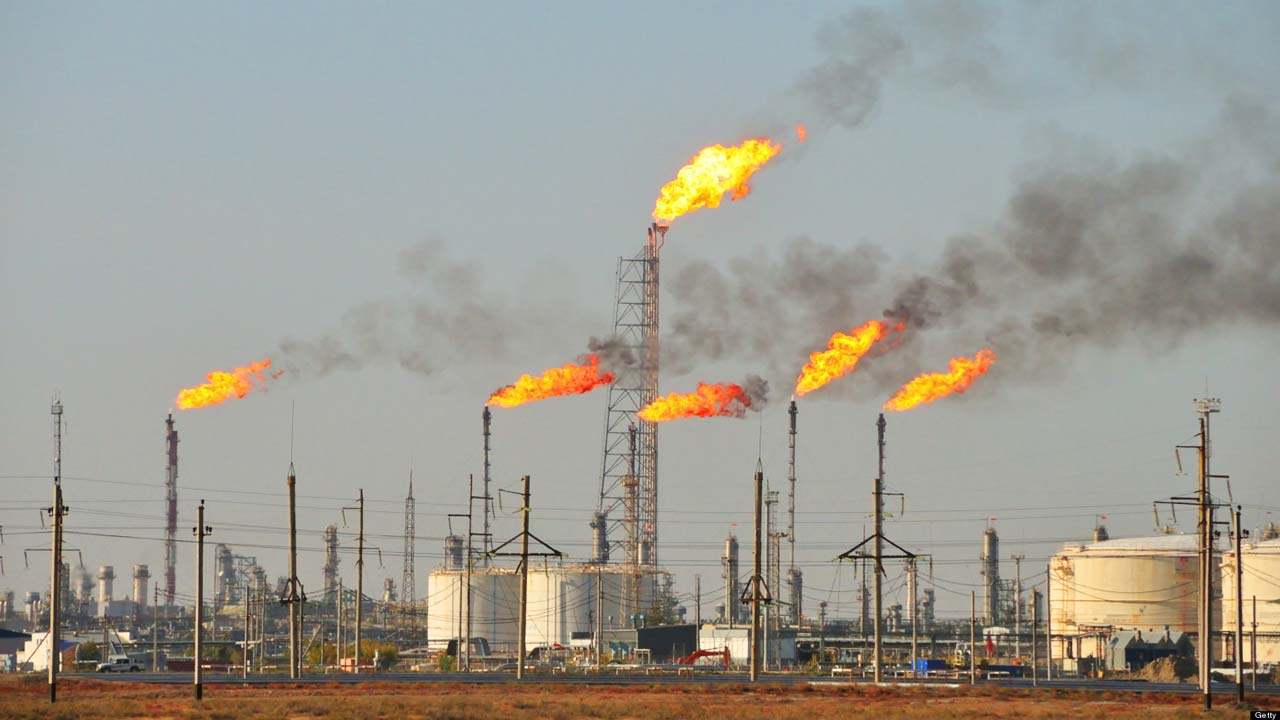Oil Firms Pays N127 Billion For Flaring Gas
Oil and gas firms operating in the country have paid a total fine of $294m or N127bn, for gas flaring between January and August this year.
After missing the 2020 deadline, Nigeria has set a country deadline for 2025 while President Muhammadu Buhari made a commitment toward the Paris Agreement during the COP26 Leaders’ Summit to achieve Net Zero carbon emissions by 2060.
A recent statistics released by the National Oil Spill Detection and Response Agency, NOSDRA noted that a total of 147 billion standard cubic feet, costing $515m or about N222bn, was flared in the period for ehich they were fined.
The quantity of gas flared in the period was 13 per cent lower than the 169 billion SCF of gas, valued at $591m, which was about N255bn, flared in the same period in 2021.
NOSDRSA also noted that the volume of gas flared in the period under review in 2022 was equivalent to carbon dioxide emissions of 8 million, which could have fetched the country about 15 gigawatts hour of electricity, as a result of gas flare in eight months.
In comparison, the 168.9 billion SCF of gas flared in the same period in 2021 attracted penalties of $338 m, about N146bn, while it was equivalent to carbon dioxide emissions of 9 million tonnes and was capable of generating 16,900 gigawatt-hour of electricity.
A breakdown of the gas flare data for the 2022 period showed that companies operating in Nigeria’s onshore oil territory flared 75 billion SCF of gas, valued at $262m (N113bn), an equivalent of 4 million tonnes of carbon dioxide emissions and 7,500 gigawatt-hour electricity generation potential. On the other hand, the firms were liable for penalties of $150m, an equivalent of N65bn.
Specifically, NOSDRA data pointed out that in January, February, March and April 2022, onshore oil firms flared 19 billion SCF of gas; 14 billion SCF; 10 billion SCF and 7 billion SCF, respectively. Also, 9 billion SCF, 5 billion SCF, 5 billion SCF and 5.4 billion SCF of gas was flared in May, June, July and August 2022, respectively.
On the other hand, the oil spill regulator stated that companies operating in the country’s offshore oil exploration and production territory flared 72 million tonnes of gas in the eight-month period of 2022, valued at $253m, which was about N109bn.
They were liable to pay penalties of $144m (N62bn), while the gas flared was equivalent to 4 million tonnes of carbon dioxide emissions and had power generation potential equivalent to 7,200 gigawatt-hour of electricity.
Particularly, NOSDRA reported that 11 billion SCF, 13 billion SCF, 6 billion SCF and 15 billion SCF of gas was flared by companies operating offshore in January, February, March and April 2022 respectively.
Nigeria and other countries have moved to stop gas flaring due to it’s harmful effects.
It introduces toxic pollutants such as sulfur dioxide into the atmosphere, which can lead to environmental problems such as acid rain, as well as the generation of greenhouse gases which contribute to global climate change
Beside the many health problems associated with it, flared gas causes air pollution, and soil/crops destruction. Over the years, farmers in regions where gas is being flared have always complained of low crop yield due to soil and air contamination, thereby affecting the vegetation and crop produce.
Hence gas flaring is dangerous, wasteful, and very polluting. Oil companies can sell the gas rather than burn it off. But this is more costly and difficult because gas must be stored under pressure, increasing the risk of fires and explosions.
Currently, companies producing more than 10, 000bpd pay a fine of $2 per 1000 Standard scf of gas flared. Companies producing less than 10, 000bpd pay a fine of $0.5 per 1000scf of gas flared.



Comments are closed.